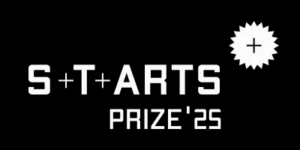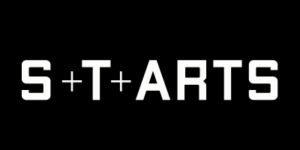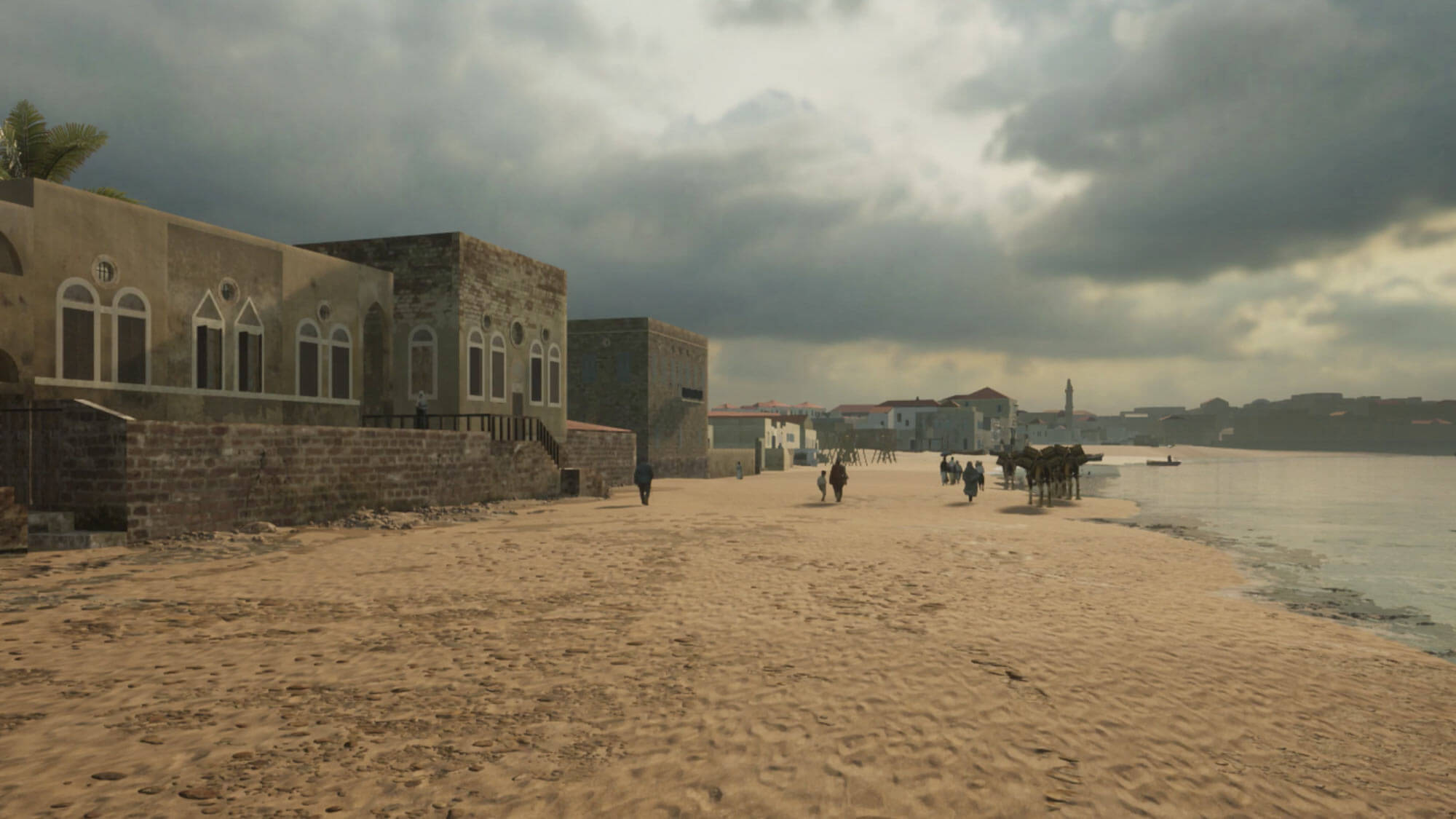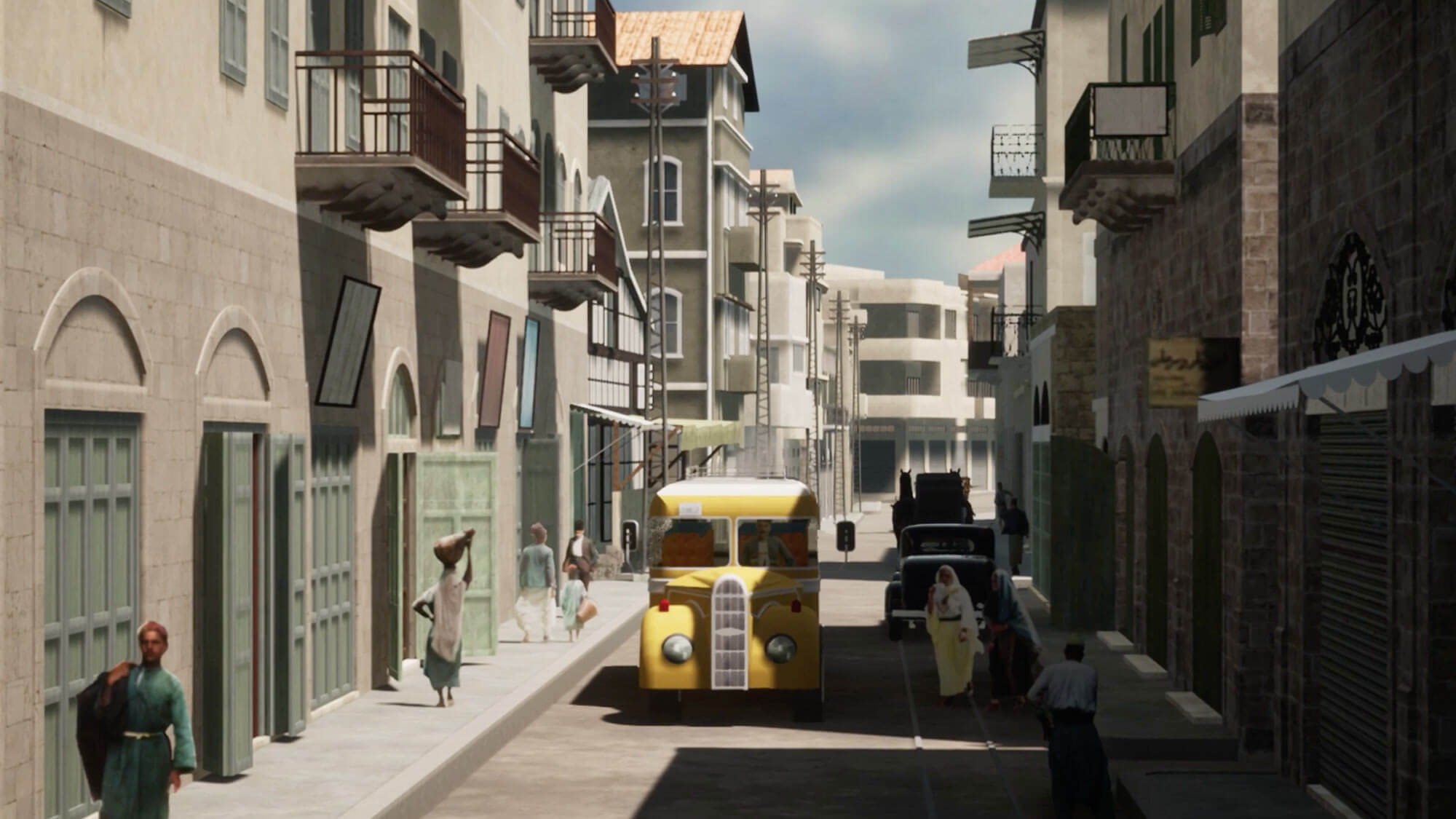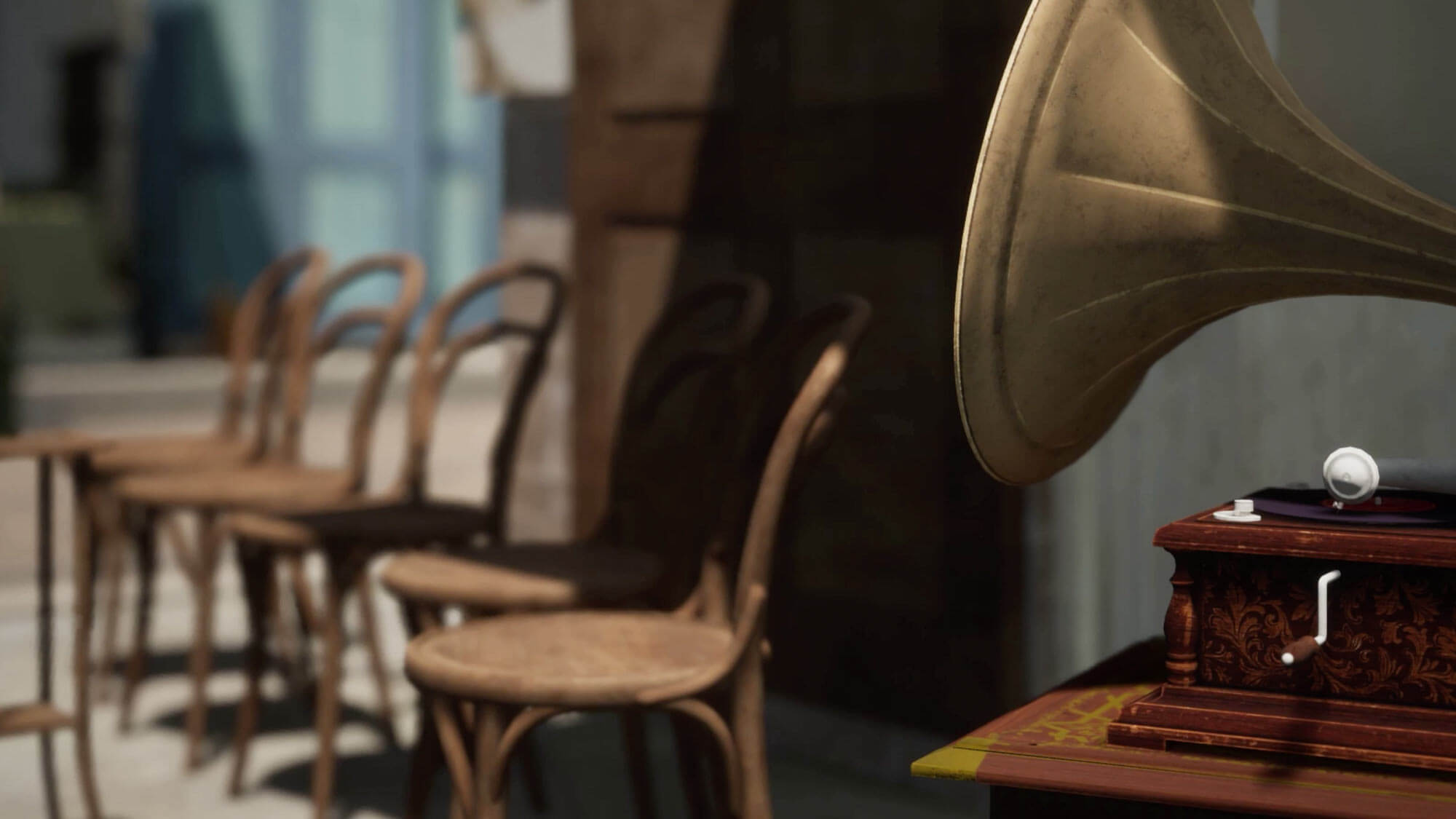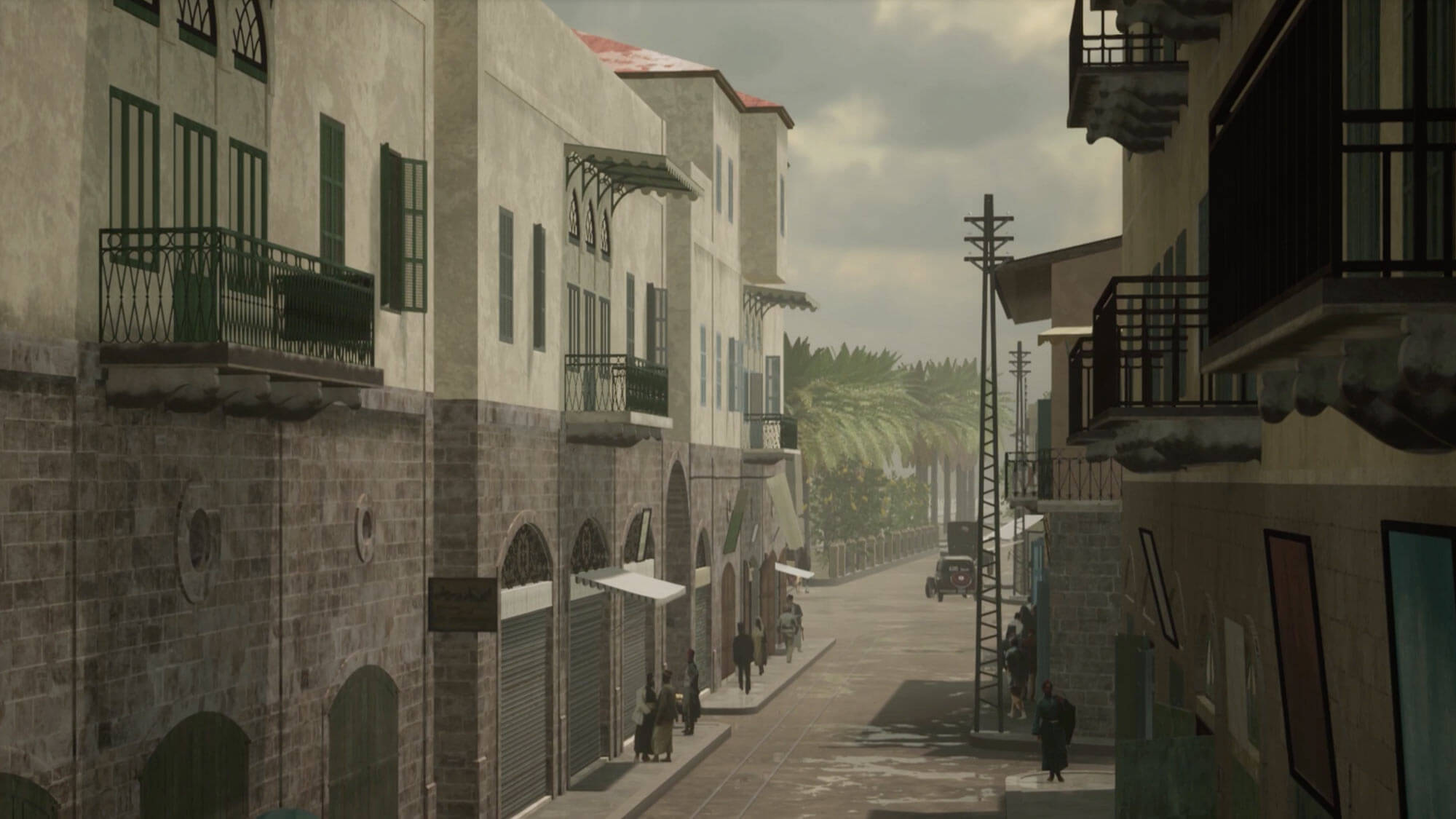Honorary Mention
The VRJ Palestine initiative (Virtual Reality Journey to pre-Nakba Palestine) delves into the potential and challenges of Virtual Reality tools to reclaim and recapture Nakba’s lost landscapes. Using archival data and survivors‘ accounts to virtually reconstruct the Palestinian villages demolished in 1948, it aims to preserve intergenerational memories conveyed through stories and photos. Despite the fragmented but valuable archives, the necessity for more innovative documentation tools is paramount for three reasons:
Firstly, emerging digital narrative tools offer more engaging, multi-sensory, and innovative historical storytelling experiences than conventional methods, enhancing user engagement. Secondly, with Nakba survivors aging, there is a looming risk of losing the collective memory of each destroyed place over time. Thirdly, many archival collections are exclusively for scholarly purposes, posing a challenge for public access.
The project employs a multi-layered approach, combining various archival data to construct a fully interactive real-time rendered environment. Its ultimate goal is to provide a real-time virtual journey to these reconstructed places, allowing people to engage and immerse themselves in the reconstructed spaces and memories. The final product is adaptable, designed for activation on different VR platforms, including WebVR tours and immersive VR experiences. VRJ Palestine has showcased a number of projects, reconstructing villages such as Tantoura, Hittin, Zirin, and sections of Jaffa city. For START Prize submission, Jaffa-Flashbacks, a project published in 2023, will be mainly exhibited. Jaffa-Flashbacks project offers an online virtual experience (WebVR) accessible across a wide range of digital devices, including smartphones. Through these projects, it bridges the gap between history and innovation, inviting diverse audiences to engage with revitalized realms, forging profound connections with the past through advanced technology.
Credits
Artist: Nisreen Zahda
Maps, photos, archival data, & other media used in VRJ Palestine are credited properly for each project
Biography
Nisree Zahda (PS) is an architect, urban planner and virtual reality artist based in Tokyo, Japan. She was born in Hebron, Palestine, studied architecture in Birzeit University, Palestine and received her PhD in urban planning from Chiba University in Japan. She started VRJ Palestine to reclaim Nakba’s lost landscapes using digital virtual reality narrative tools.
Jury Statement
The VRJ Palestine (Virtual Reality Journey to pre-Nakba Palestine) project, initiated by Nisreen Zahda in 2020, represents a groundbreaking endeavor in the virtual reconstruction of Palestinian villages destroyed during the Nakba in 1948. This project employs advanced 3D modeling and real-time rendering software to recreate the spatial structures and memories of these villages, offering an engaging and immersive experience for the public. Among the notable works of VRJ Palestine are the „Nakba Timeline Map,“ a digital map that documents the systematic depopulation, ethnic cleansing, and destruction of cities and villages during the Nakba, and „A Virtual Return Journey to Destroyed Villages of Tantura, Hittin, and Zir’in.“ Through detailed photographic and archival research, these reconstructions bring new life to erased places. The fishing village of Zir’in and the historic village of Hittin, where Saladin famously defeated the Crusaders in 1187, are vividly recreated, preserving their rich histories. Additionally, VRJ Palestine pays homage to the victims of the Tantura massacre, a tragic event that the Israeli state continues to deny despite compelling evidence presented in the documentary Tantura by Israeli director Alon Schwartz. VRJ Palestine is a vital and innovative tool for documenting and presenting the Palestinian narrative. By virtually reconstructing over 400 destroyed or depopulated villages from the 1948 war, the project ensures that the memories and histories of these places are preserved and accessible. It allows people to engage with and become part of these reconstructed spaces, fostering a deeper understanding and connection to Palestinian heritage. The VRJ Palestine project presents a visionary approach and dedication to preserving Palestinian history through the powerful medium of virtual reality. Its contributions are invaluable in the ongoing effort to document and share the rich cultural heritage of Palestine with the world.
